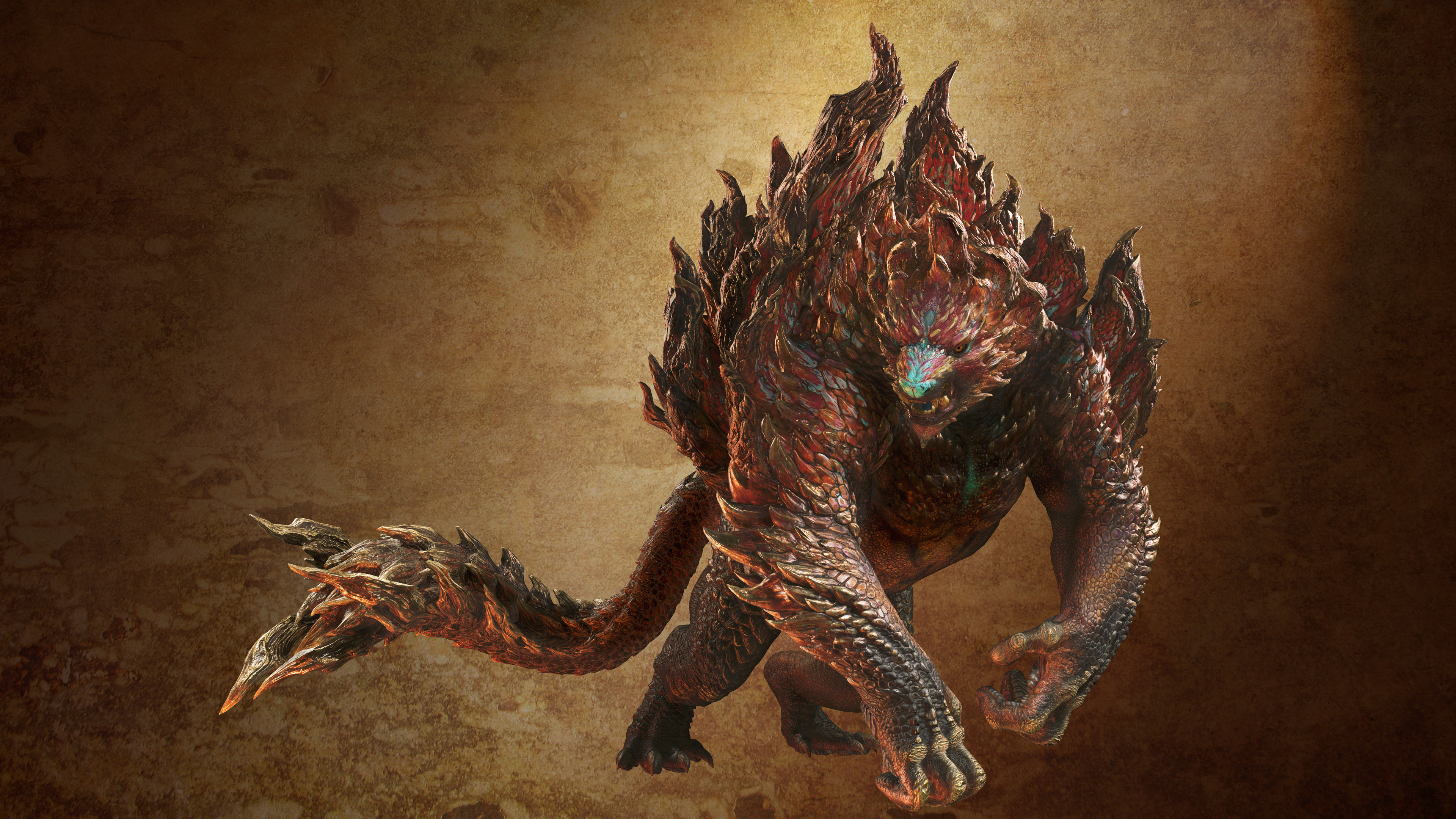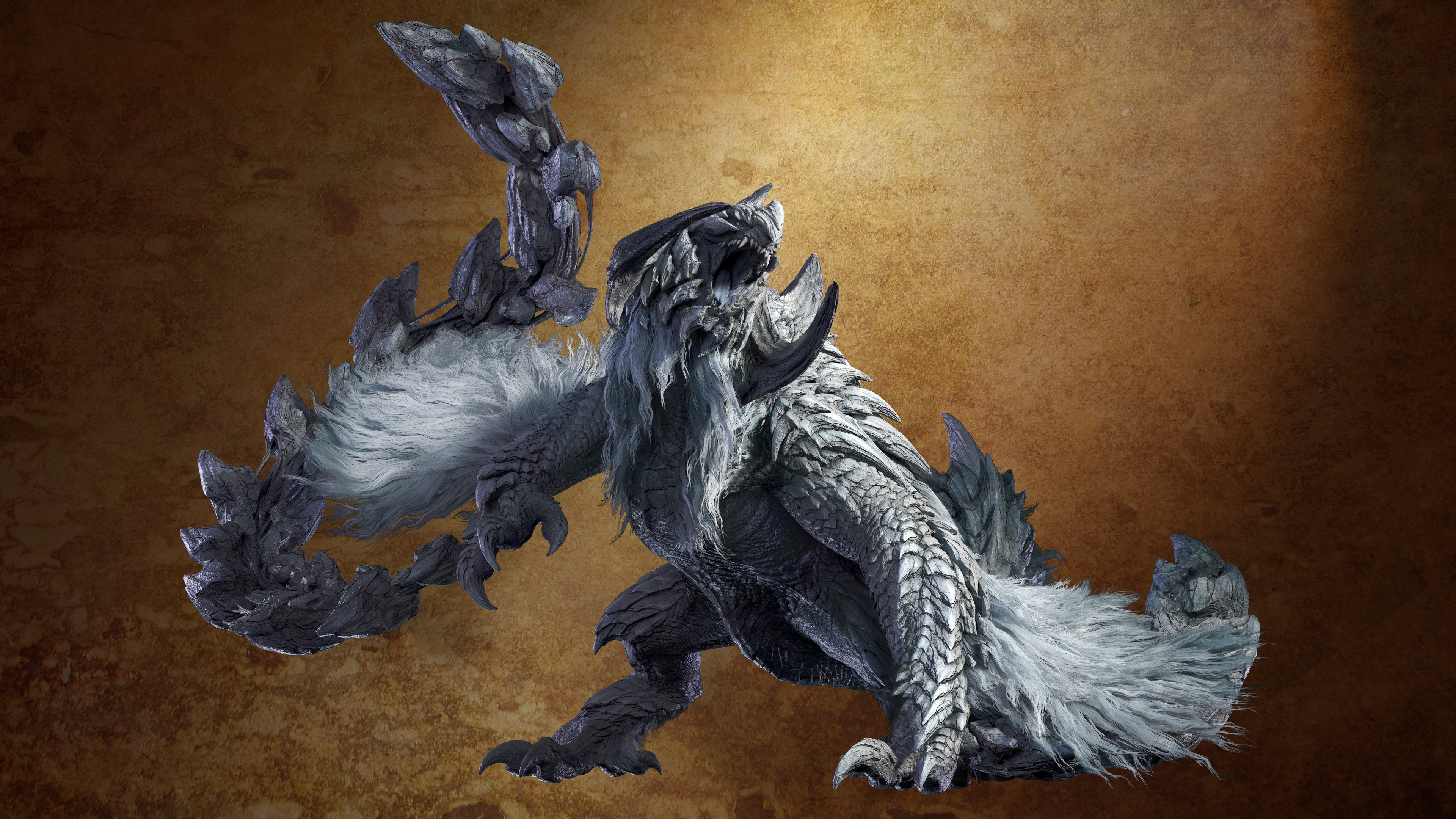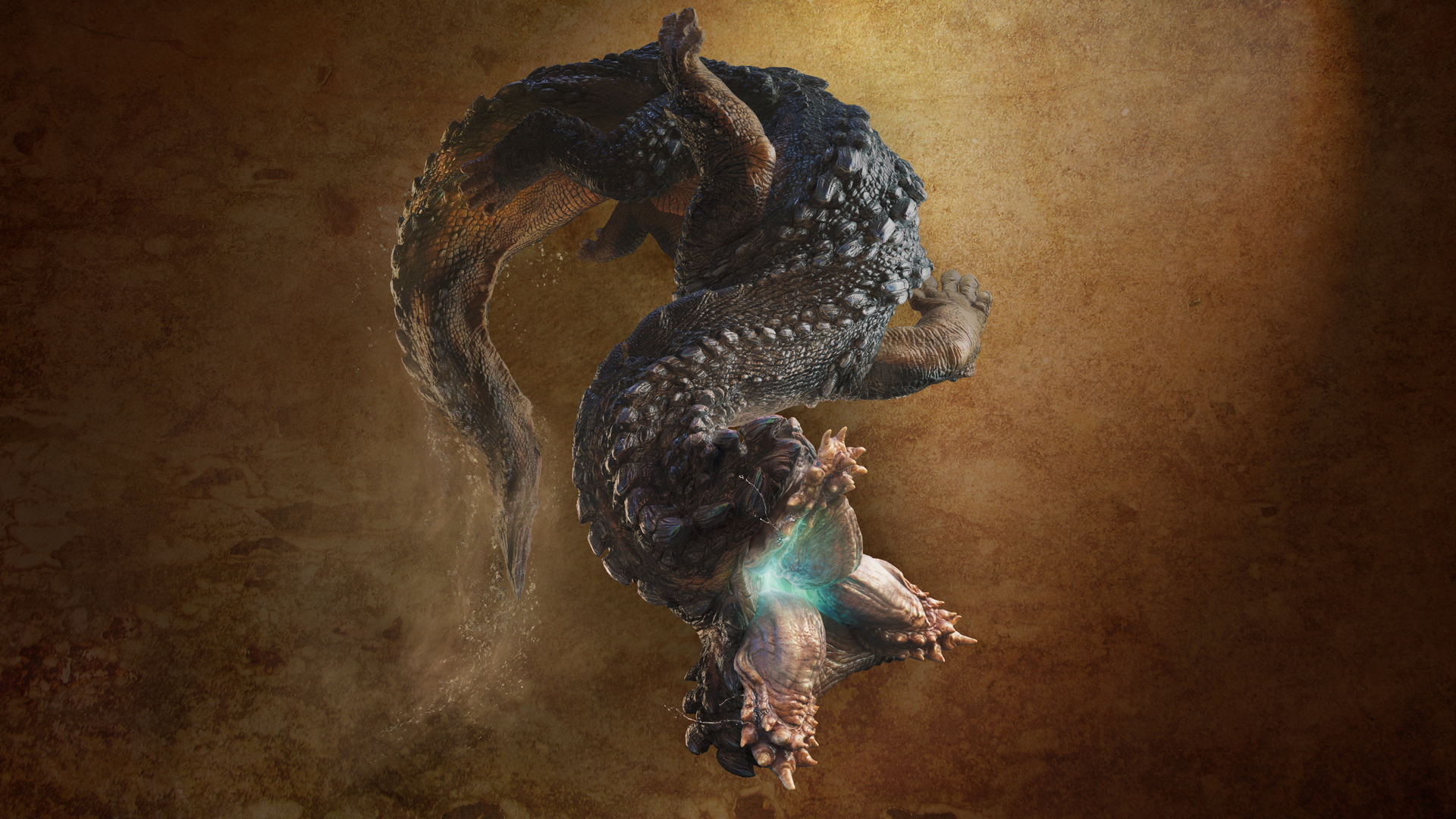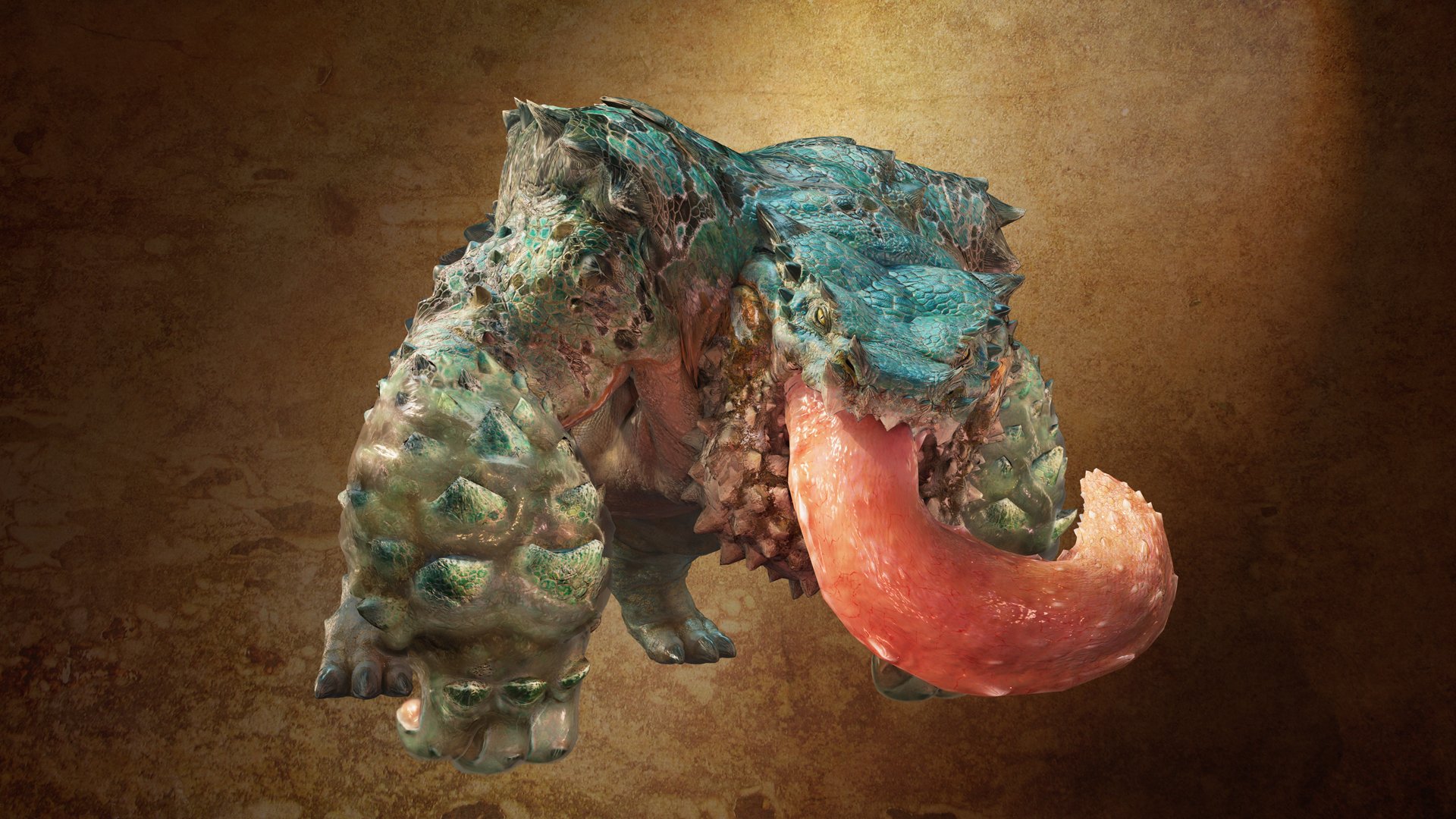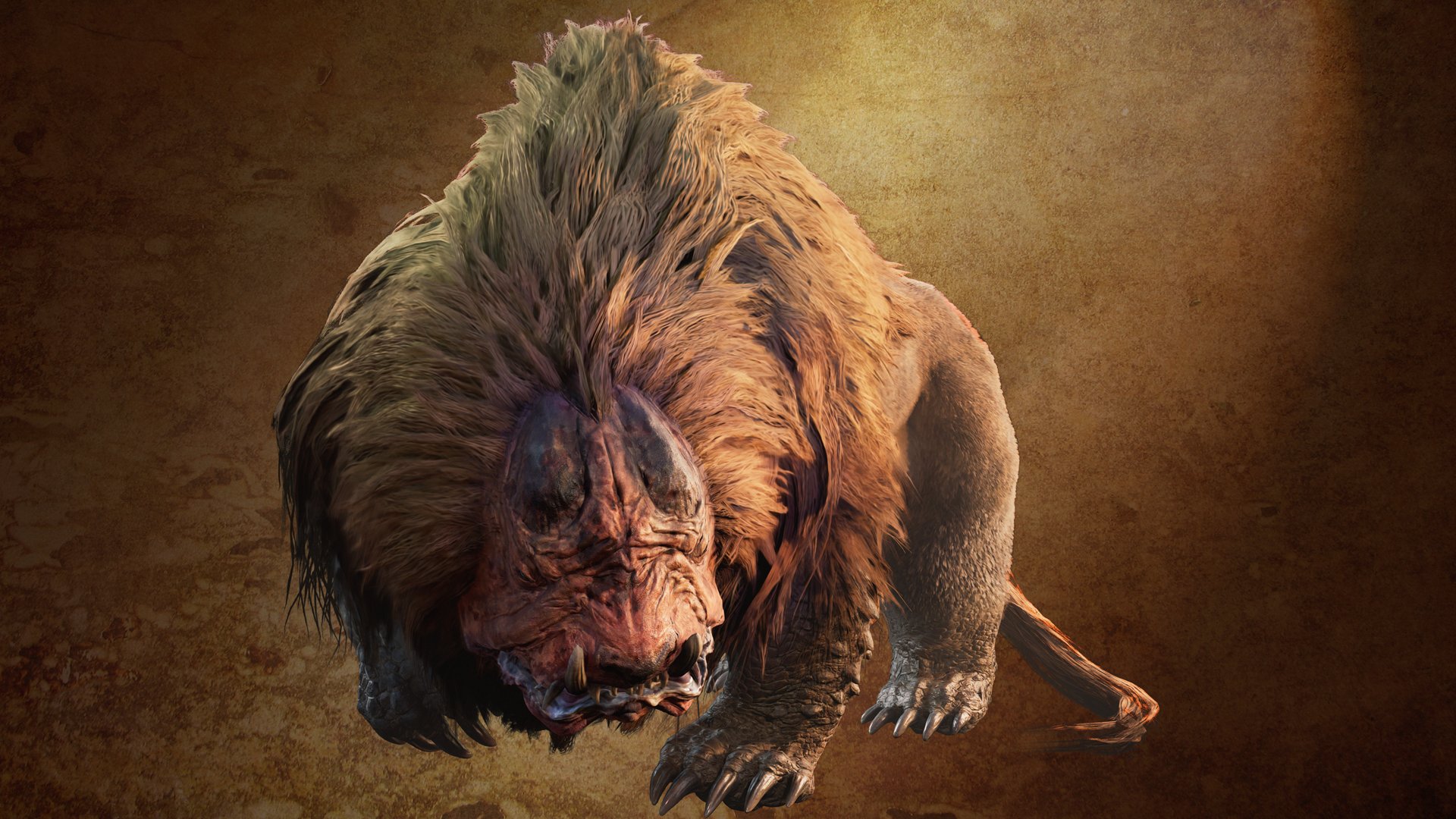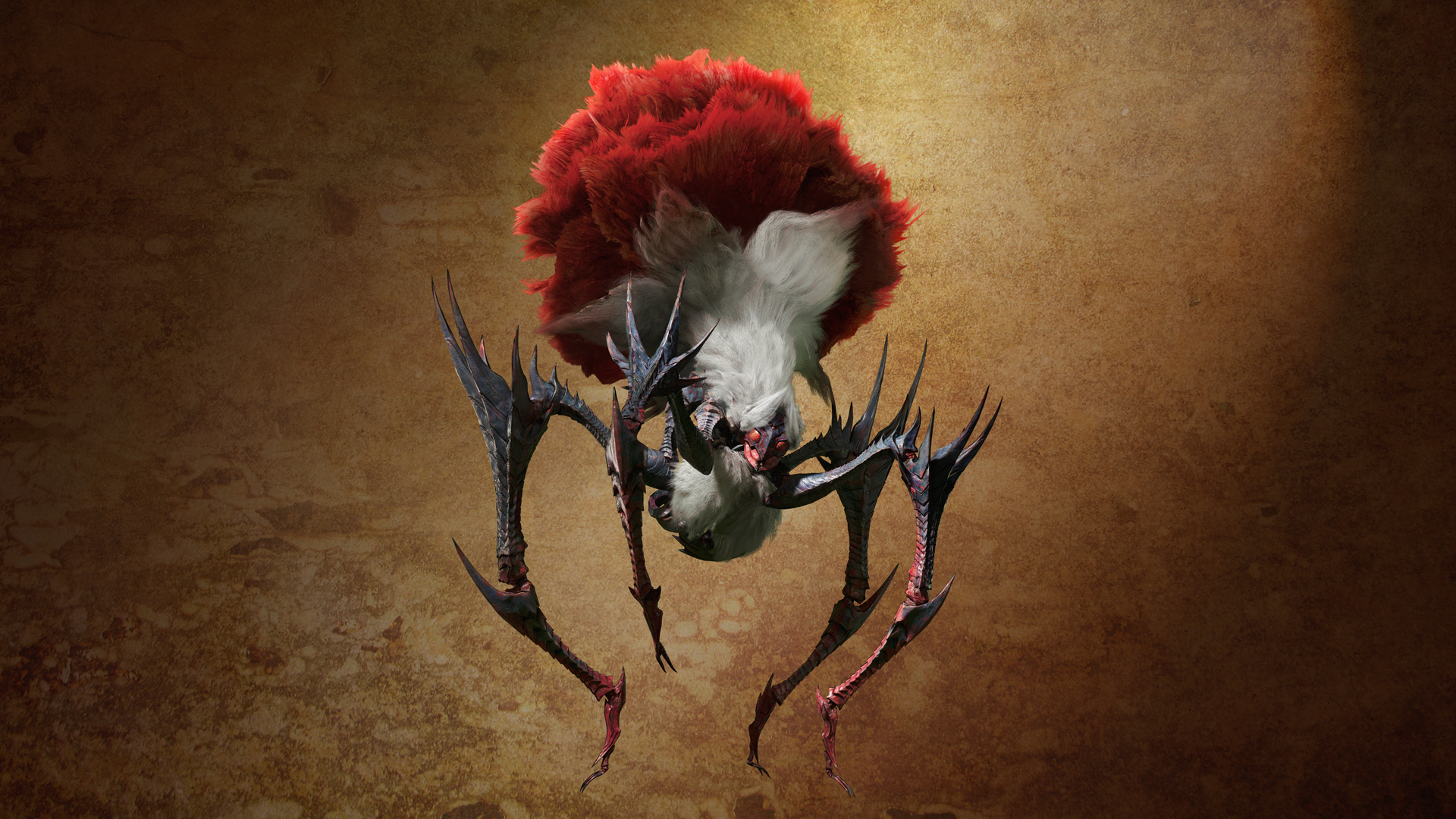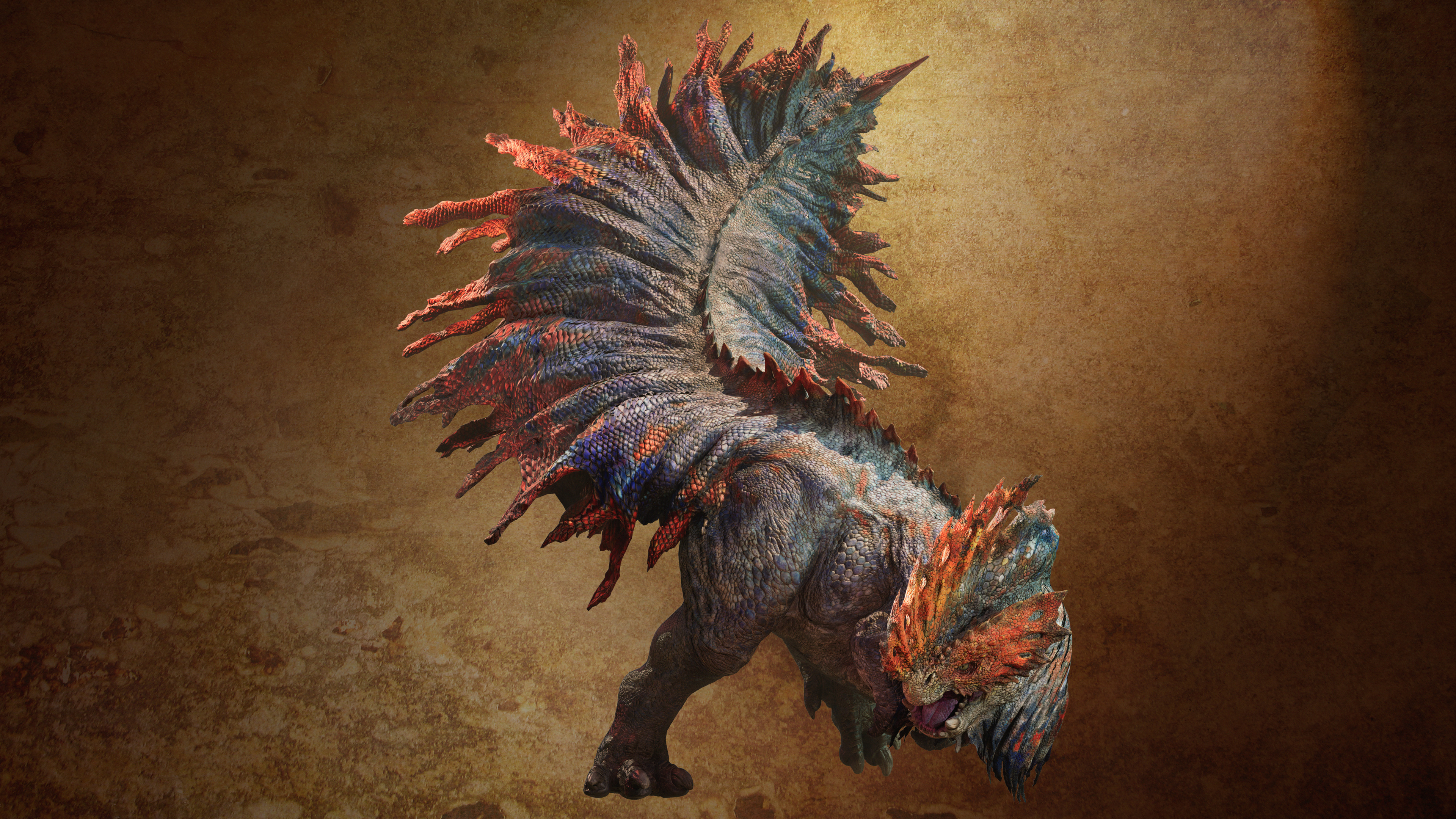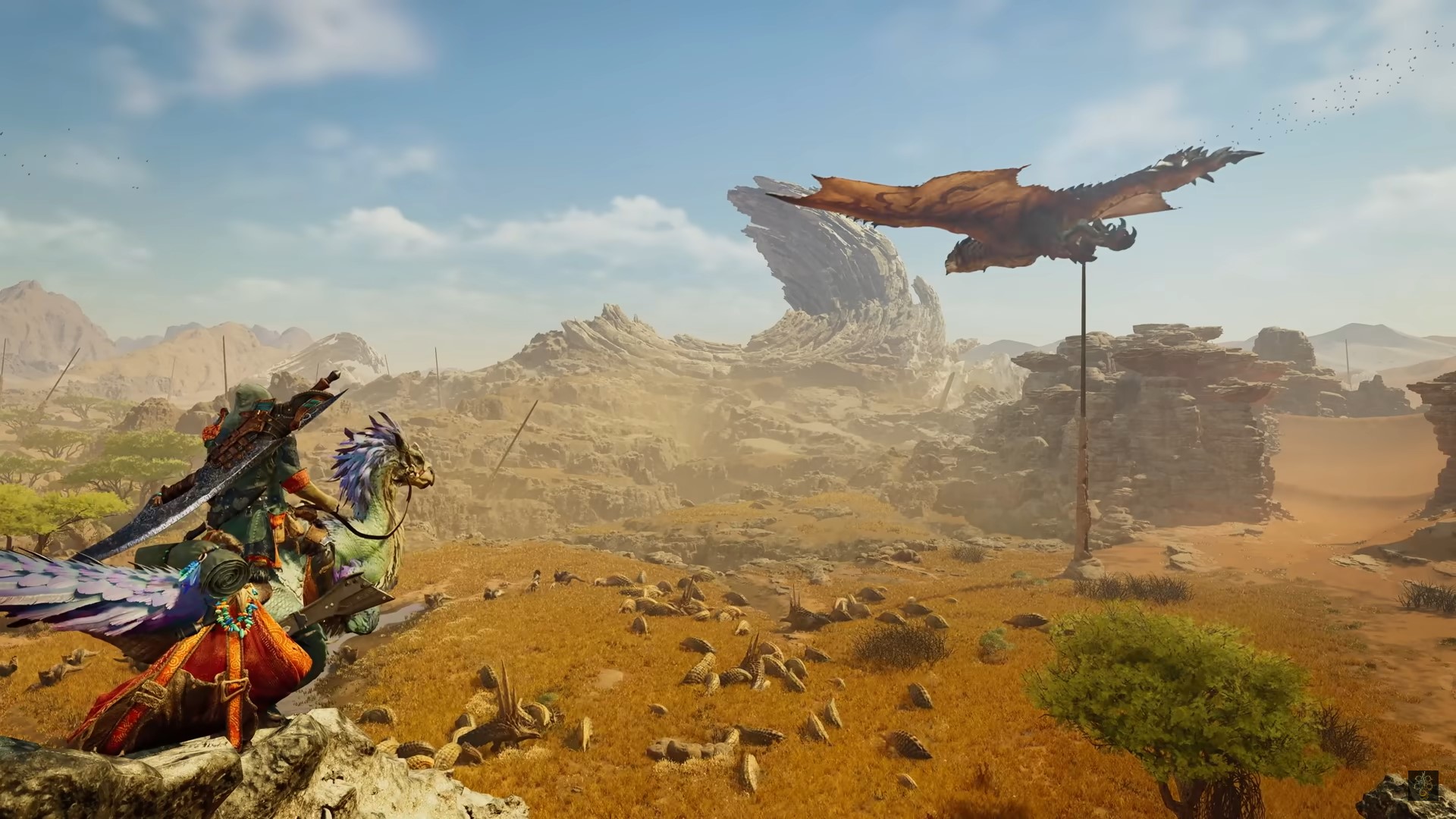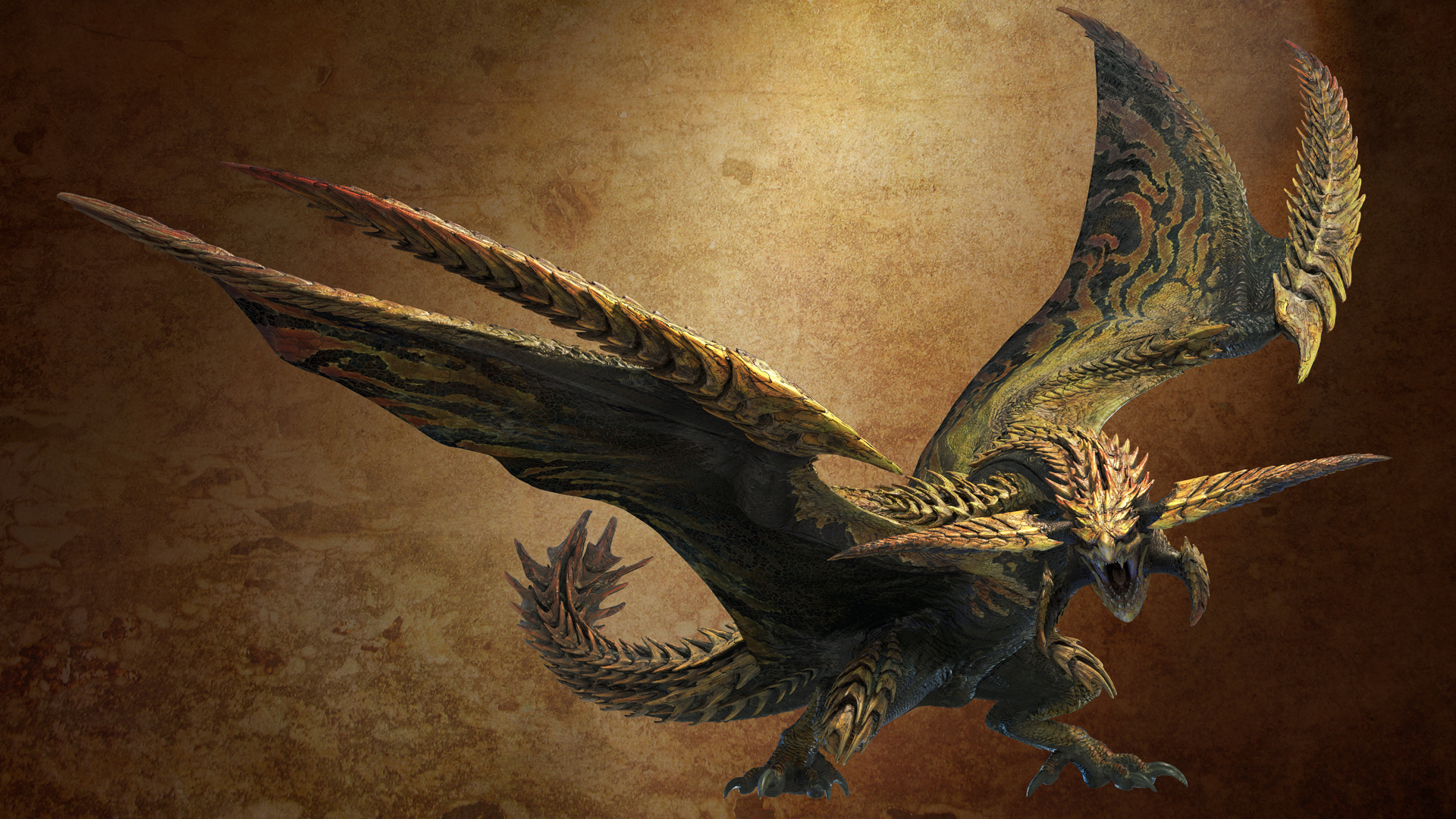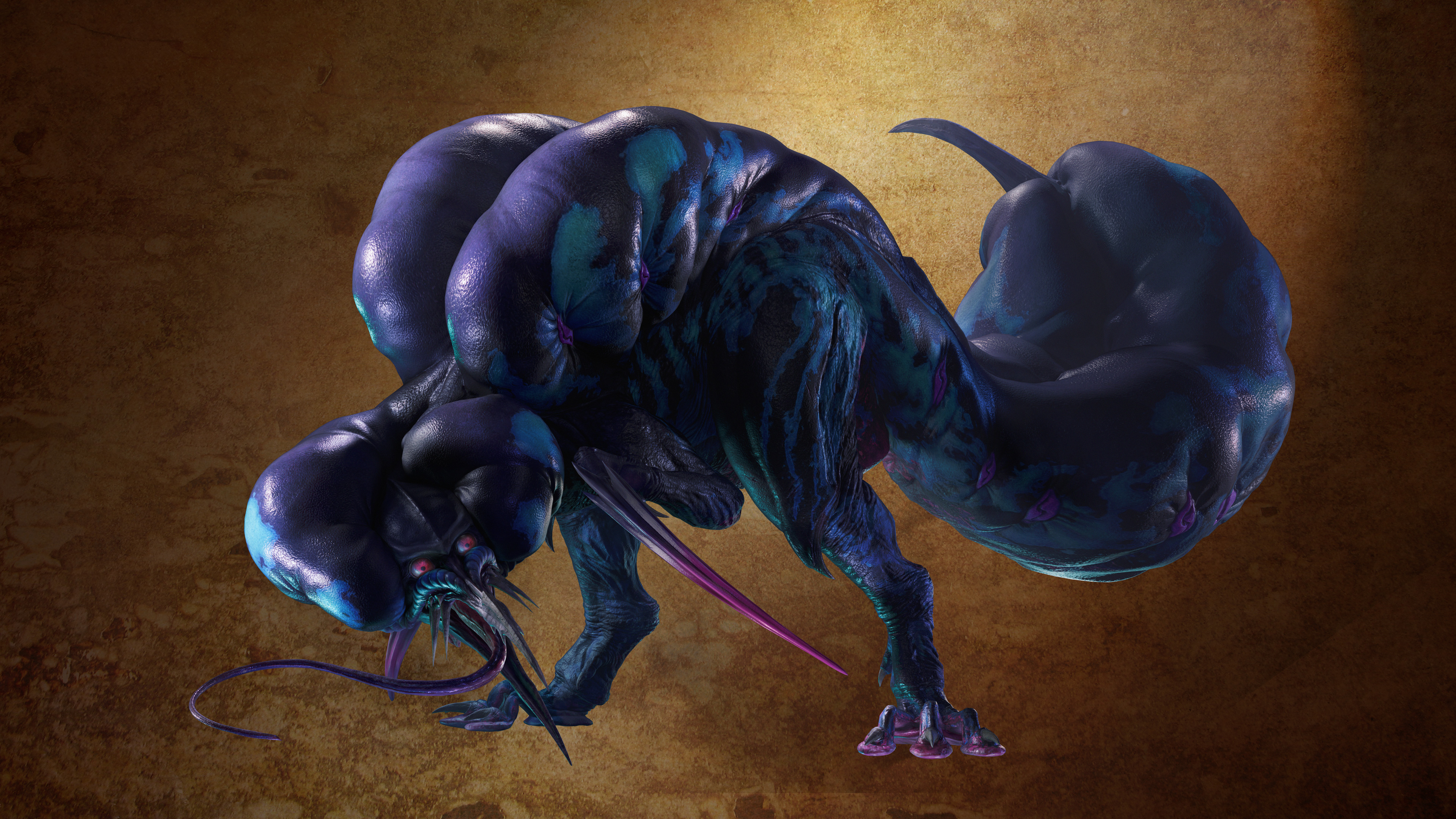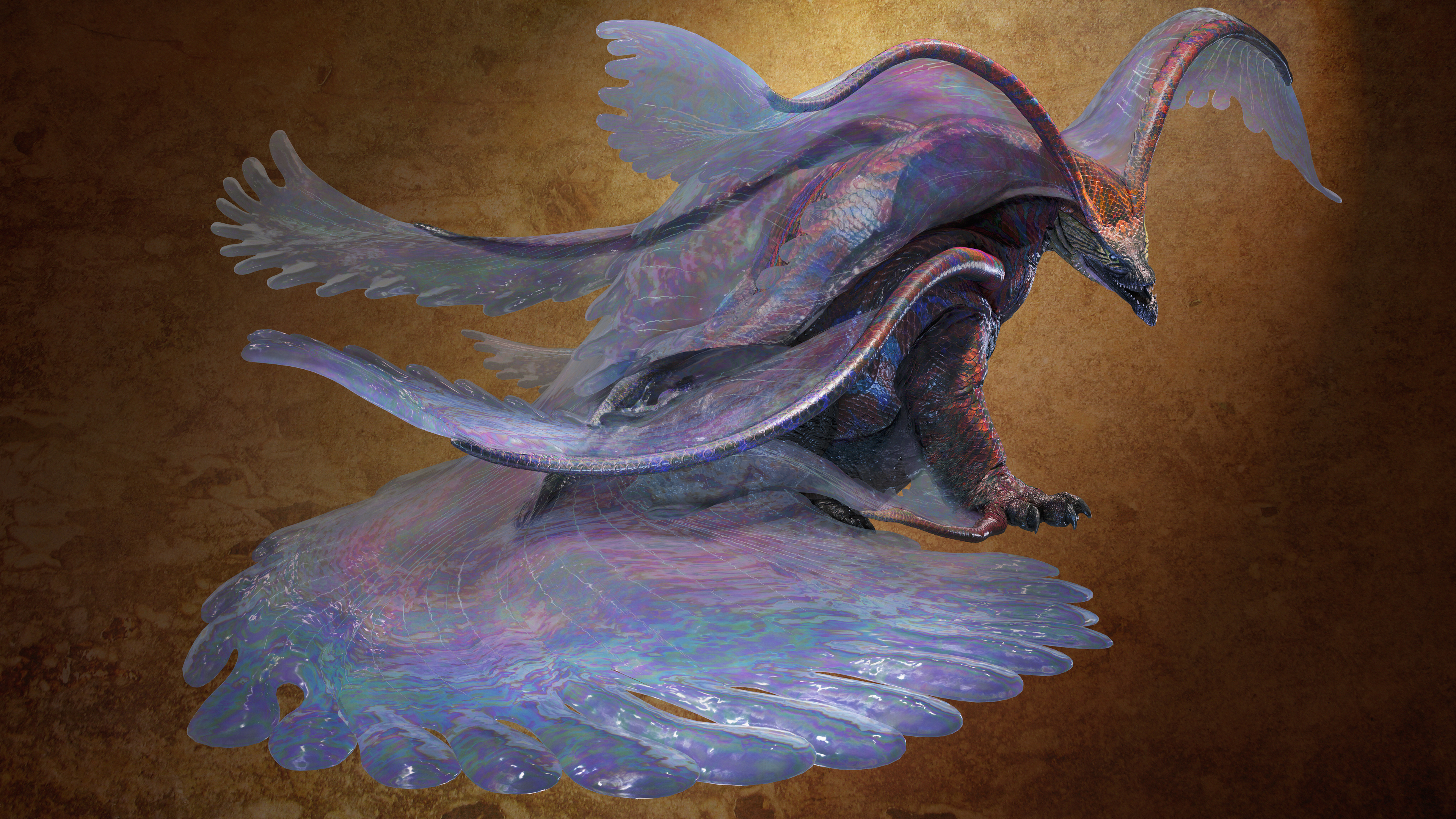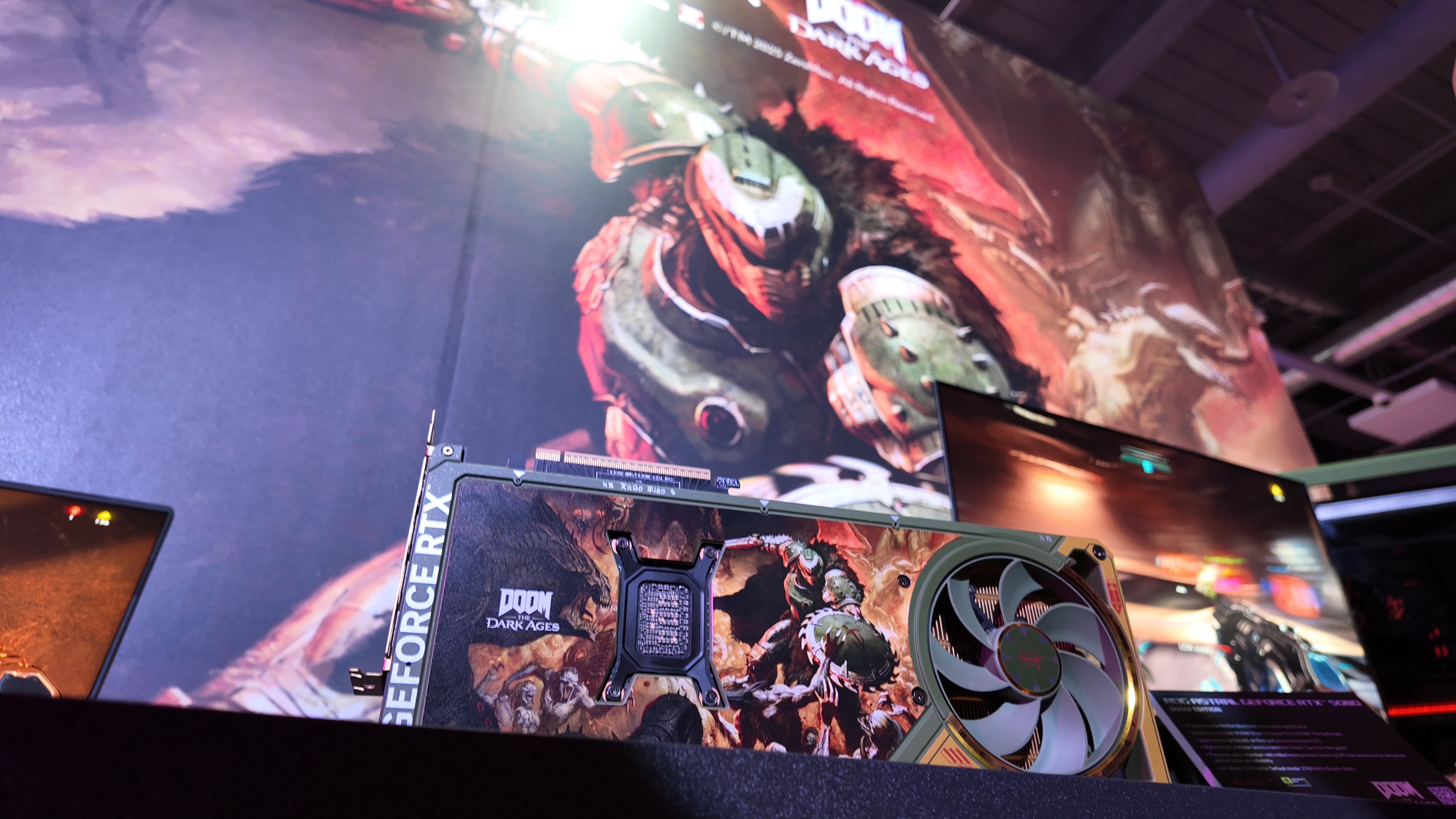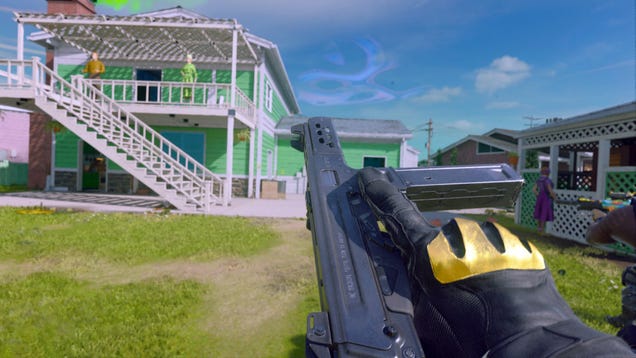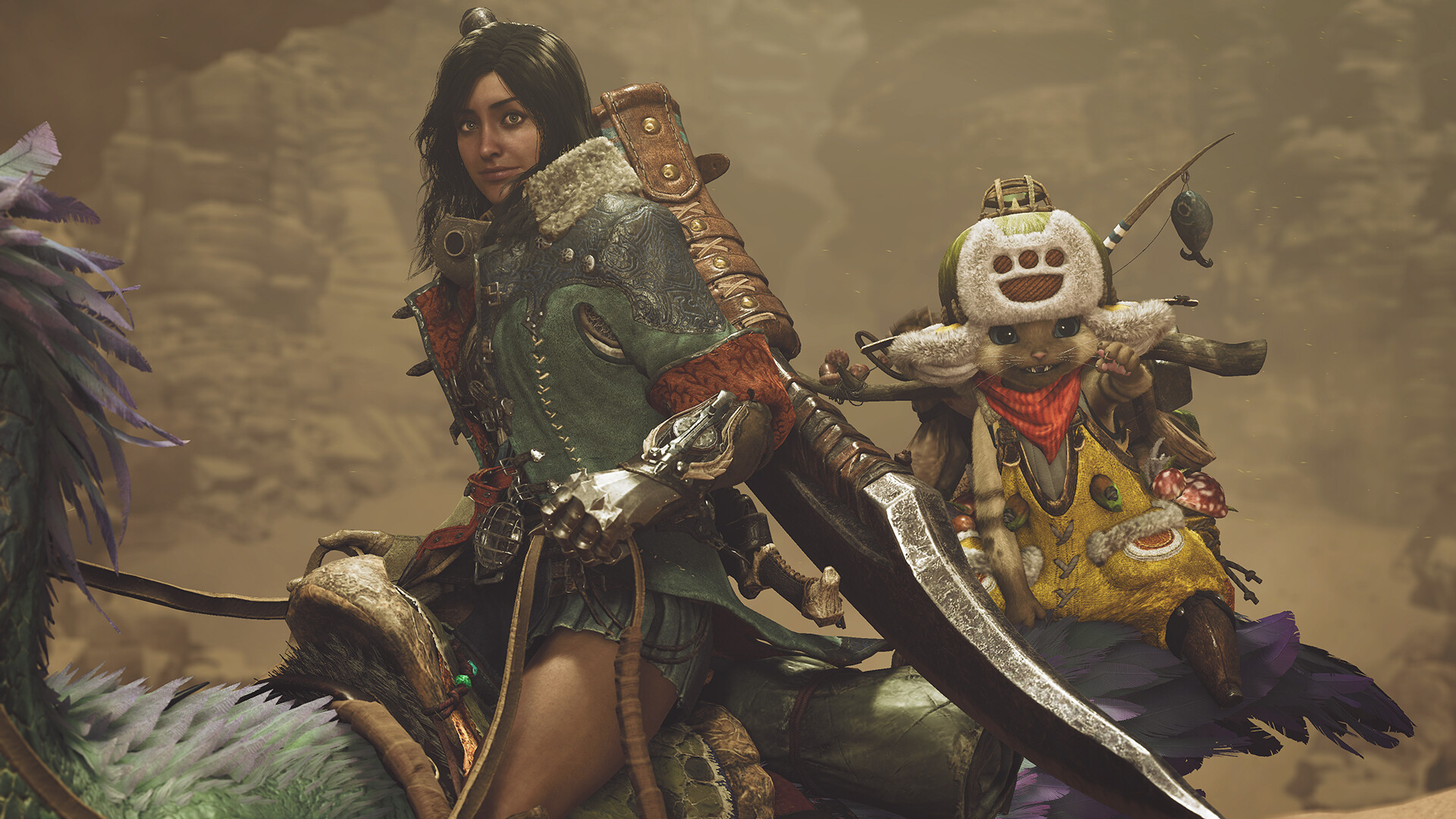
A hunting handbook for every new and returning monster.
With Monster Hunter Wilds just three months away, it’s worth studying up on the confirmed monsters that we’ll be hunting across the Forbidden Lands. Preparation is, after all, half of the hunter’s job—even if that preparation only involves deciding which armor piece would most improve your outfit.
No matter what monsters Capcom adds, every hunter’s greatest prize is fashion.
Capcom has been slowly doling out reveals for new and returning monsters in Monster Hunter Wilds, from series classics like Rathalos and Yian Kut-Ku to all-new beasties like the lightning-launching Rey Dau. Whether you’re swinging a hammer, shelling with a gunlance, or sobbing over losing the ability to stay airborne with your insect glaive, here’s the list of confirmed monsters you’ll be facing in February.
We’ll be updating this list with additional monster reveals as we approach the Monster Hunter Wilds release.
Ajarakan
Monster Class: Fanged Beast | Habitat: Oilwell Basin
Ajarakan is a hyper-aggressive, hulking primate in a similar vein as long-time monster favorite Rajang. But where Rajang is a lightning-charged, Super Saiyan ape, Ajarakan is more of a metal-plated mandrill. Monster Hunter isn’t a series that’s content to settle with a steel-encased baboon, however. When Ajarakan’s enraged, it’ll rake its own shell with its claws until the metal plating is molten-hot, presumably adding fire damage to its rampage.
Arkveld
Monster Class: Unknown | Habitat: Unknown
Called “The White Wraith” by the inhabitants of the Forbidden Lands, Arkveld is the mascot monster for Wilds, and seems like it’ll factor heavily into the story, having apparently destroyed the home village of one of the game’s main characters. Capcom hasn’t released much information about Arkveld, but it had apparently been considered an “extinct species” by the hunters’ research commission before being encountered in the game.
Extending from Arkveld’s forelimbs are two whip-like appendages. During its reveal in the fourth Monster Hunter Wilds trailer, it can be seen with its whips glowing as they’re coiled around another monster.
I can only speculate, but considering that it’s a massive, horned, white wyvern with a majestic beard, I feel like we can safely assume that its armor sets will look pretty rad, at least.
Balahara
Monster Class: Leviathan | Habitat: Windward Plains
Leviathan monsters tend to be aquatic, but Balahara instead occupies the sands of the Windward Plains as an ambush predator. Its coiled, spiraling scales let it burrow beneath the sand to create quicksand traps to swallow hunters and other monsters.
The Black Flame
The people of Azuz speak of the haunting visage cast by the Black Flame. Be wary of the unknown and mysterious, hunters. #MHWilds pic.twitter.com/vGx0MLXdhpOctober 25, 2024
Monster Class: Unknown | Habitat: Oilwell Basin
We don’t yet know the actual name of the monster that the inhabitants of the Oilwell Basin call “The Black Flame.” From the brief glimpse of the creature Capcom gave at the end of the Oilwell Basin trailer, it seems to be a huge, spined cephalopod that’s constantly exuding oil, which it can ignite at will to produce gouts of fire.
It bears a passing resemblance to the elder dragon Nakarkos, a giant squid-like monster first introduced in Monster Hunter Generations that encases its tentacles in the skeletons of other monsters. Those could just be coincidental or taxonomic similarities, but it’s possible that The Black Flame is some form of Nakarkos variant or subspecies.
Chatacabra
Monster Class: Amphibian | Habitat: Windward Plains
One of the introductory hunt targets in Wilds, Chatacabra is a frog-like amphibian monster. While it can use its long tongue to attack, its primary utility is coating the Chatacabra’s forearms with a thick, adhesive saliva which lets the monster attach environmental materials to strengthen its attacks. It’s, you know, gross. Still, points for ingenuity.
Doshaguma
Monster Class: Fanged Beast | Habitat: Windward Plains, Scarlet Forest
Somewhere between a bear, a lion, and a mole-rat, the Doshaguma is a burly, shaggy powerhouse, capable of tearing up huge chunks of earth when it’s enraged. The biggest, most aggressive specimens are the Alpha Doshaguma—red-pelted variants that are accompanied by packs of its fellow monsters.
Players of the Monster Hunter Wilds beta likely battled an Alpha Doshaguma in the Windward Plains, but trailers have also shown them in the Scarlet Forest region.
Lala Barina
Monster Class: Temnoceran | Habitat: Scarlet Forest
Lala Barina is like if a dracula was a giant wooly spider made out of knives and spears. Nesting in webs of crimson silk in the Scarlet Forest region, it can extend sets of scything claws from its forelimbs, while its abdomen boasts a retractable, impaling stinger.
When enraged, the Lala Barina can unfold its abdomen, appearing to bloom like a giant rose. When it does so, it can scatter bundled florets of its silk, which will paralyze hunters on contact.
Quematrice
Monster Class: Brute Wyvern | Habitat: Windward Plains
The Quematrice is one of the tyrannosaurish brute wyverns, but this one is crested and draped in sheets of sagging hide to give it an appearance resembling the mythological cockatrice. Given that the Spanish “quemar” means “to burn,” I’ll give you a few seconds to guess what its special talent is before I continue.
If your answer was “create horrible fire,” you’re right! The Quematrice can spread a flammable powder, which it can ignite with sweeps of its tail.
Rathalos
Monster Class: Flying Wyvern | Habitat: Unknown
Rathalos, the flying wyvern mascot for the Monster Hunter series as a whole, hasn’t been seen battling any hunters in Wilds footage released so far, but it’s briefly seen flying over the landscape at the end of the Wilds reveal trailer. Considering Rathalos has been huntable in every Monster Hunter game to date, it’s safe to assume that appearance wasn’t just for show.
Having hunted Rathalos for years now, I think of it more as an old friend than a storied foe. At least, until I remember all the times it’s refused to land while raking me with poisonous talons and strafing the area with fireballs. Ah, memories.
Rey Dau
Monster Class: Flying Wyvern | Habitat: Windward Plains
The Rey Dau is the imposing apex predator of the Windward Plains, where it most often appears during the lightning storms that sweep across the region during the Sandtide. Able to harness the lightning strikes for its own ends, it can charge its bladed wings and tail with electricity, carving superheated streaks into the landscape as it attacks.
For its heaviest attack, Rey Dau can snap its horns forward to turn its head into an organic railgun, which lets it channel a blast of lightning capable of one-hitting an unwary hunter. Successfully dodging the blast gives, however, gives you an opportunity to land a focus strike on the Rey Dau’s head as it cools down from the attack.
Rompopolo
Monster Class: Brute Wyvern | Habitat: Oilwell Basin
Rompopolo is a hateful creature. I mean, look at it. Vile thing.
If simply beholding a Rompopolo doesn’t convince you that it’s beyond any human capacity for mercy, all its nightmarish, bulbous sacs are filled with a poisonous gas, which it can inject into the oil-soaked silt of its home terrain to cause a violent explosion. Awful.
Uth Duna
Monster Class: Leviathan | Habitat: Scarlet Forest
Uth Duna is a large, bulky leviathan that acts as the apex predator of the Scarlet Forest region. According to Capcom, it’s seen most often during the Downpour, when the Scarlet Forest floods with torrential rainwater. Capable of manipulating moisture, Uth Duna can use the Downpour’s waters to veil itself in a protective barrier.
Revealed in the Monster Hunter Wilds release date trailer, Uth Duna looks—and seems to fight—like a cross between a Royal Ludroth and the elder dragon Namielle, slamming with its bulk, striking with its claws and fangs, and launching itself into water to send flood surges sweeping across the battlefield.
Yian Kut-Ku
The big beaked bird wyvern, Yian Kut-Ku, returns with a vengeance in Monster Hunter Wilds!How and when will you encounter them? That’s for you to find out! #MHWilds pic.twitter.com/anw15tiFXKSeptember 26, 2024
Monster Class: Bird Wyvern | Habitat: Scarlet Forest
Like Rathalos, Yian Kut-Ku has been around since the very first Monster Hunter game, although it’s been absent from the last few mainline releases. Returning in Wilds, it’ll apparently be one of the monster species that can be encountered in packs. Given its penchant for loud squawks, I’m sure that’ll be a lovely acoustic experience for everyone involved.
The Yian Kut-Ku can launch fireballs from its beak, and it’s recognizable for its characteristic frills that flare open when it’s on alert. With Yian Kut-Ku confirmed for Wilds, it’s worth wondering whether we’ll also see Yian Garuga: a related species that possesses a poisonous, barbed tail.

